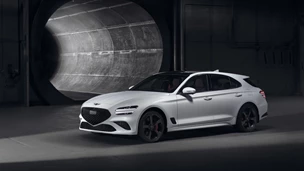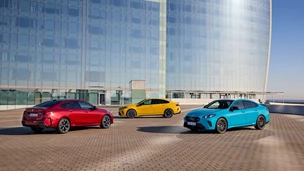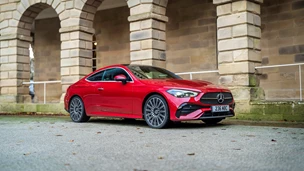The Toyota Verso is a straightforward kind of family car which has a simple goal, to provide comfortable and practical family transport. It is based heavily on another Toyota family car, the latest Auris.
Therefore, the Verso shares many components with its fellow family car including engine options for example. Unlike the Auris though, the Verso can be specified with as many as seven seats and can utilise a 1.6-litre diesel engine sourced from BMW.
There are four trim levels in the Verso range, starting with Active and followed by Icon, Trend and Excel. The Active and Icon trim version feature five seats as standard, with customers needing to pay just over £200 extra for a seven seat version. You get seven seats as standard with the range-topping Excel trim. Contenders for the Verso include the Volkswagen Touran the Renault Grand Scenic.
Performance
Engine choices for the Verso include a 1.6-litre petrol unit with 130bhp and a 1.8-litre petrol that delivers 145bhp. There’s also a 1.6-litre D-4D diesel unit, which replaced a 2.0-litre unit previously used for the MPV’s range. The current diesel is also found available for the BMW 1 Series and the MINI Hatch range.
In the Verso, the 1.6-litre diesel is 20kg lighter then the engine it replaces and produces 110bhp. This gives the Verso a zero to 62mph sprint time of 12.7 seconds and a top speed of 115mph.
In any guise, suffice to say that searing acceleration and dizzying speed aren't this small MPV's strongest suits, but although no street racer it performs respectably on the road and doesn't feel underpowered, at least not with two people and light luggage aboard.
Ride and Handling
It’s quiet and refined, it has nicely weighted and decently precise steering, plus a superb gear change and clutch action.
In short, it's an absolute doddle to drive, which for most of us most of the time is precisely what we want. It’s clear that with the Verso, Toyota focused on providing a car that’s relaxed and pleasant. Consequently it’s never likely to be the kind of car that gets enthusiasts pulses racing with its dynamics. However, this MPV largely delivers on its main goal. It’s quiet and refined, it has nicely weighted and decently precise steering, plus a superb gear change and clutch action. The ride is generally comfy and compliant with ample grip and capable braking.
Interior and Equipment
Before becoming its own model, the Verso name was originally used for MPV derivatives of other Toyota models including the Yaris, Corolla and Avensis.
While the Verso is available as a seven-seater, it isn’t a large car. Therefore, while there's ample room and comfort in the front, adults might find things a bit cramped after a long journey in the second row, especially if there are three of them. While in common with other similarly-sized MPVs, the two-seat third row is really for kids only. Folding the seats flat or vice versa is simple, but with the third row seats upright there's precious little luggage space. On a more positive not though, the seats are flexibly and cleverly designed. Boot capacity with all seven seats up is measured at 178 litres, which is less than virtually any modern city car. This isn’t really unusual though compared to a lot of other seven-seater family cars. In five-seater form, the Verso’s load space increases to a much more attractive 607 litres. The storage compartment found under the boot floor is a welcome feature as well. Standard kit for the Verso includes air conditioning, a CD/radio player, a rear spoiler and front electric windows. From the mid-range Icon trim onwards you get an impressive amount of luxuries such as cruise control, Bluetooth and a rear-view camera.
Cost
The fresher diesel option records 62.8mpg on the official combined fuel cycle and emits 119g/km, not bad at all for a family car that can seat up to seven.
Pricing for the Toyota Verso starts at £16,995, increasing to £20,300 for the popular Icon trim and up to from £23,800 for the Excel. Compared to its most direct rivals, this pricing range is certainly competitive, undercutting the VW Touran for example. For the best running costs, the 1.6-litre diesel is the more sensible option, with the petrols emitting between 154g/km and 159g/km. The fresher diesel option records 62.8mpg on the official combined fuel cycle and emits 119g/km, not bad at all for a family car that can seat up to seven. With the diesel unit, the Verso sits as low as Band C for Vehicle Excise Duty.
Our Verdict
The Toyota Verso is easy to drive, looks sharp and travels smoothly. It’s also practical, economical and feels well-built. So in general there’s little to fault when it comes to assessing the Verso. It is never likely to thrill you when driven but buyers of cars such as these are unlikely to be prioritising entertainment. The Verso performs well next to other compact MPVs in terms of practicality and comfort and its pricing comparatively gives it extra appeal. True, other types of small family cars like modern hatchbacks can be much more fun. However, if you’ve reached a point where you need more room but you want to still have a ‘small’ family car then the Verso makes a lot of sense.




